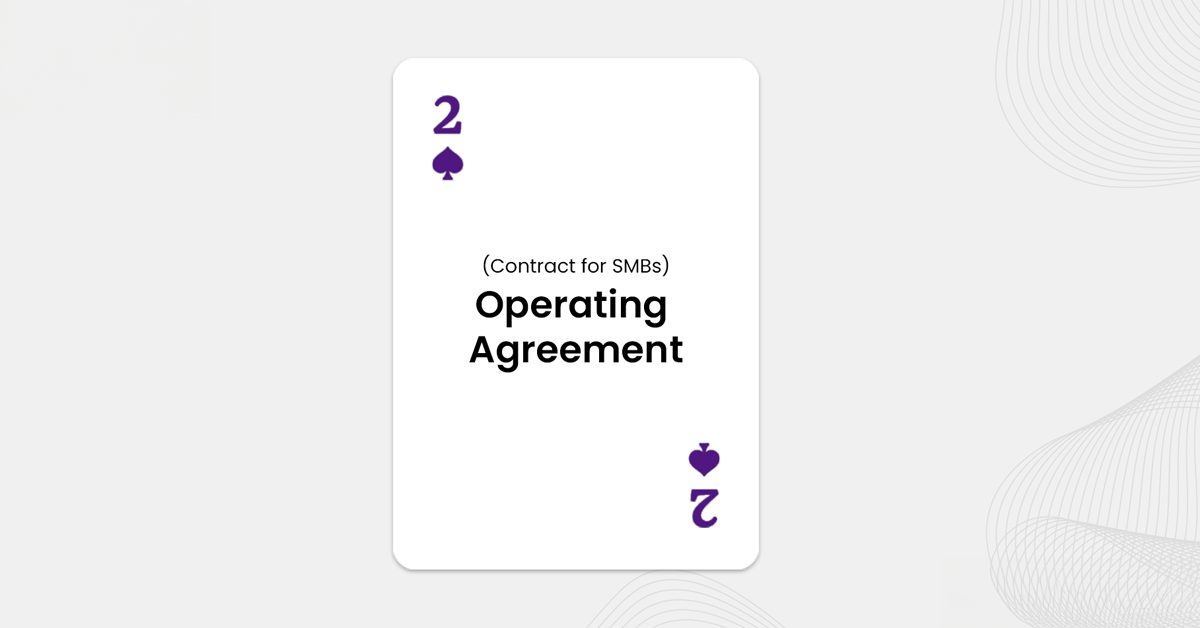(Note: This post was initially published on LinkedIn, and the following iteration is a syndicated and updated version of the same.)
So, you’re starting a small business. What form should the business take: sole proprietorship, partnership, limited liability company (LLC)?
Regardless of what form you choose, don’t let your enthusiasm for entrepreneurship lull you into shunning formality and structure. You need an operating agreement. But creating one doesn’t have to be difficult. We’ve been drafting them for 30 years. Here’s what your small business needs to know.
Defining the Operating Agreement: Purpose and Importance
What’s an operating agreement?
Fortune 500 or family business, a company’s operating agreement is a statement of the intentions, understandings, obligations, and regulations that guide the company. The text should reveal the identity, role and financial interest of the owners and the rules they’ll abide by regarding the governance of the business.
Once the operating agreement is signed, the owners are bound by its terms.
Why Do Small Businesses Need a Written Operating Agreement?
Simply put, oral agreements rarely sway judges and juries. Even if owners verbally agree to certain terms, misunderstandings may arise that create conflict.
A written agreement can avoid the pitfalls of accidental miscommunication since its terms can be referred to in the event of a disagreement. The absence of an operating agreement may allow the state to apply default rules that can be contrary to the owners’ verbal intent.
Protective Aspects of Operating Agreements
Can an operating agreement protect owners from personal liability? Yep. And they can also make tax understandings and processes easier.
One kind of structure, popular among small businesses, is the LLC. The Journal of Accountancy reports an explosive growth in LLCs over the past two decades (67%).
Creating an Operating Agreement
Is it difficult to create an operating agreement? Only you, your lawyer and your accountant know what understandings should be included in an operating agreement.
However, the actual agreement can be relatively straightforward. Many small business operating agreements we’ve handled are five pages or less. So, what’s in those pages? An operating agreement’s terms and provisions generally include:
• The company and its purpose
• The company’s owners and their duties, including meetings
• The owner’s percentage interest in the business, their capital contributions, and any voting rights
• A statement of account, distribution of profits and losses, and buy-sell rules
• The governing state law
• Any indemnifications
This is just an outline of what’s typically found in an operating agreement. The particulars depend on the structure of the company and the owner’s objectives.
As commercial contract management services providers, we’ve handled most types of operating agreements, particularly those for LLCs, and provide the necessary templates not only for new businesses but also for acquired companies, joint ventures, and reorganizations.
Storage & Accessibility of Operating Agreements
Take care where you keep your operating agreement.
Operating agreements generally don’t have to be filed with the state. That doesn’t mean you can file it away somewhere and forget it. You wouldn’t be the first small business owner to misplace your company’s operating agreement. We’ll keep a copy for you, just in case!
You wouldn’t be the first small business owner to misplace your company’s operating agreement. We’ll keep a copy for you, just in case!




